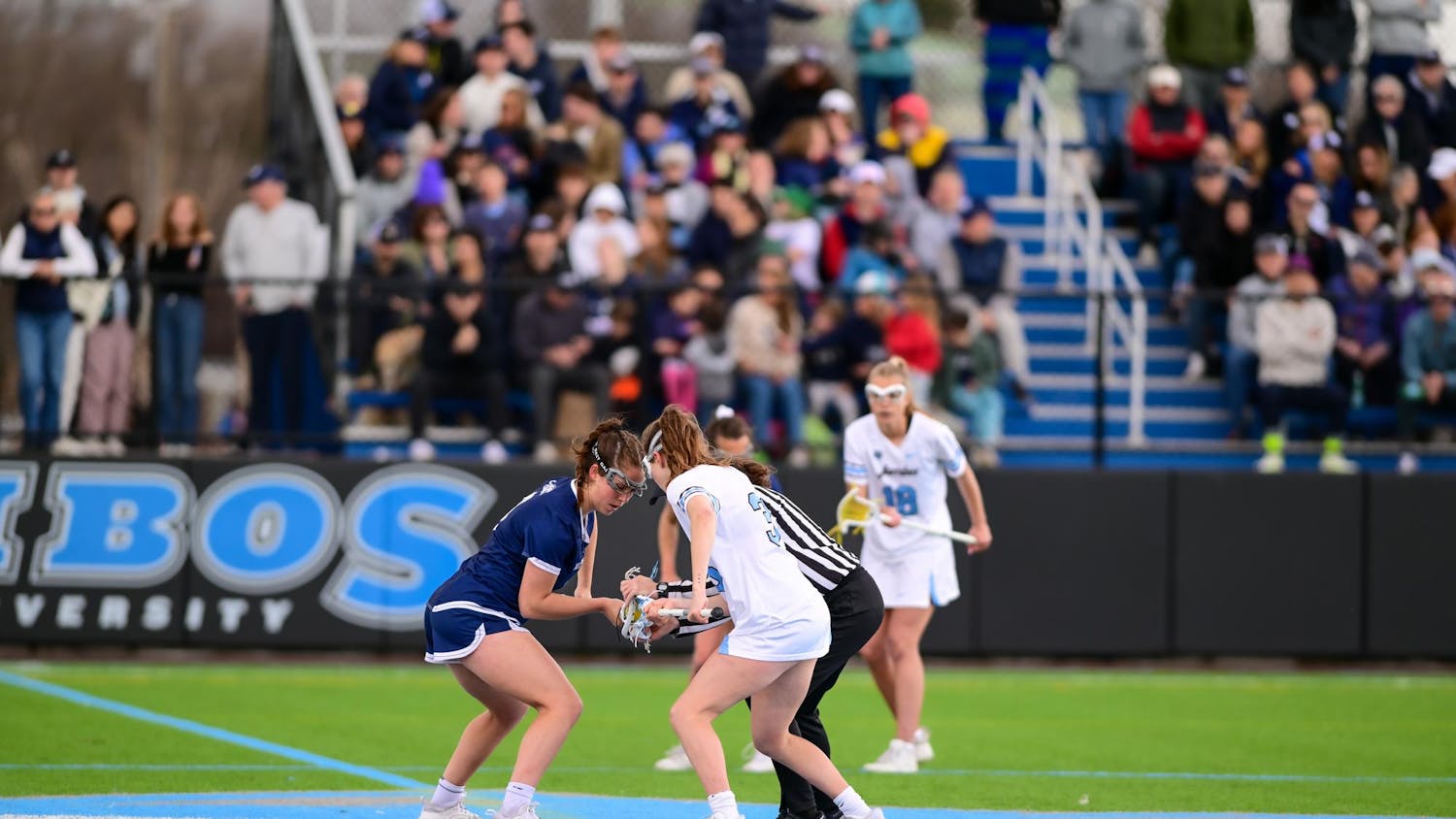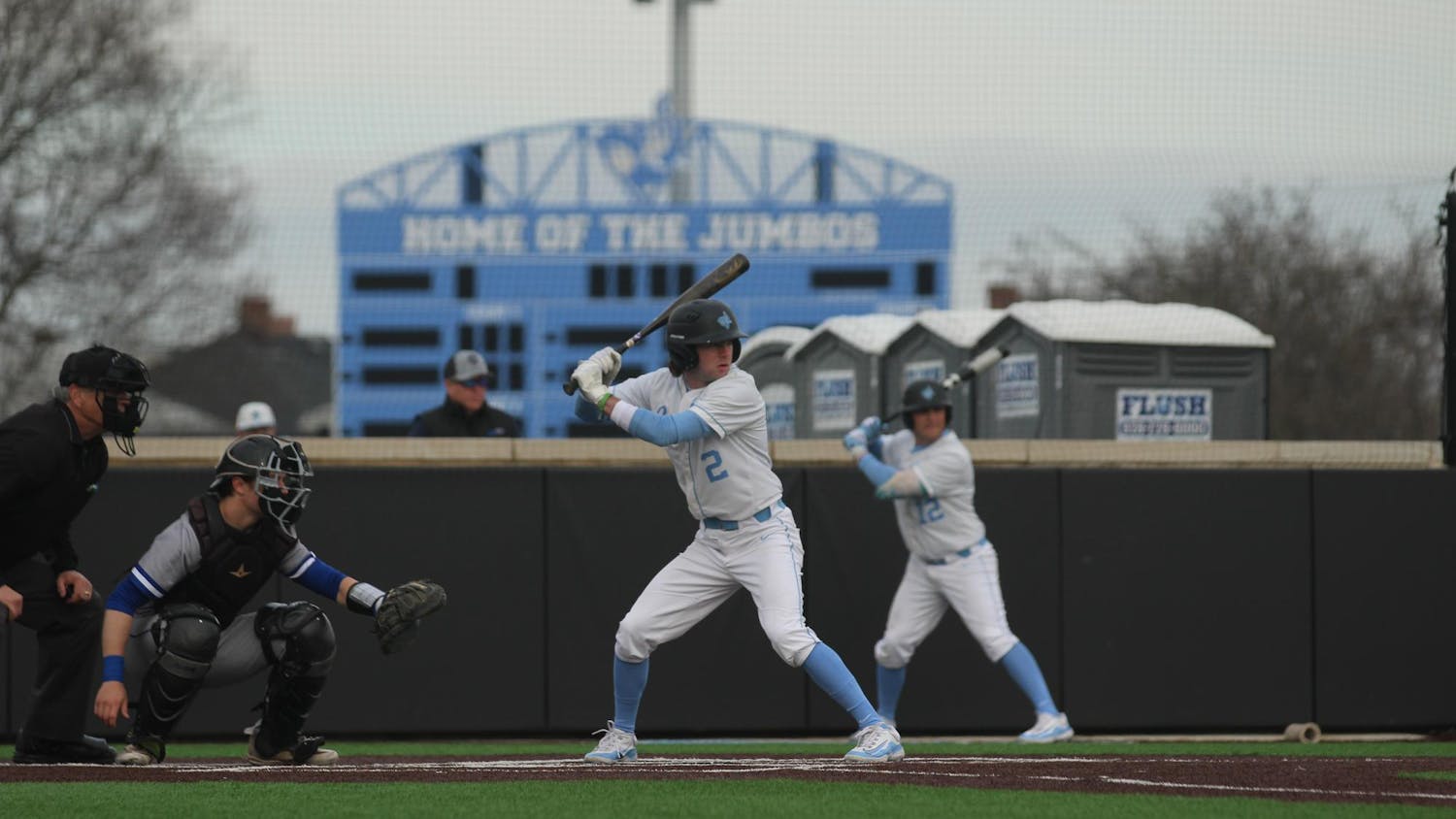If you want to know what it's like to play Tufts club hockey, you should probably know how the team spent its Saturday a few weeks ago.
At 2:30 p.m., they met at the Campus Center. They piled into upperclassmen's cars and headed toward Norwich, Vt., arriving there at 6:00 p.m. They warmed up, played a hockey game, lost 7−4 and at 10 p.m., they were back on the road to Medford.
The reasons not to play club hockey outnumber the reasons to play. There's the travel time, the 10:00 p.m. practices two times a week and the hefty fees, which can come to as much as $1,000 per year, between rink time, gas and uniforms.
If you're on the team, you're on it for one reason.
"If these kids didn't love hockey, they wouldn't be there," said first−year head coach Julian Giantonio, who played hockey in college and recently played in the Czech Republic. "They could have saved their money. They could have bought more books or hung out more with their girlfriends. But these kids genuinely want to play."
For many of them, hockey is a lifestyle they simply couldn't imagine giving up in college.
"Hockey was a huge commitment for me in high school," senior tri−captain Dan Keches said. "We practiced at five in the morning every day of the week. Going into college I knew I wanted to play but didn't want to commit to a varsity team, because that was more than I was looking for."
The sport is unique in that opportunities to play are limited.
"You can pick up a soccer ball anytime, or throw a football anytime with your friends," junior tri−captain Seth Hurwitz said. "But going out and getting on the ice is something much more rare. You can't do it whenever you want, and when you deal with that for years it fosters a really strong affection for the sport."
Each player must decide how much he's willing to sacrifice to get on the ice.
"The commitment level is really what you make of it," Hurwitz said. "Right now everyone's got midterms and papers due, so unfortunately people will tell me or another captain that they can't make practice because they have work to do. But if you don't want to commit to a three−and−a−half hour ride to bumblef−−k, Vermont, no one's going to strap you onto the back of the car and make you go."
But make no mistake: the team plays to win. From 2003 to 2007, Tufts played only in local men's leagues — leagues for, as Hurwitz put it, "old men who can't play college hockey anymore." In 2008, Tufts joined Div. II of the American Collegiate Hockey Association, playing in the Northeast region along with 68 other schools.
In its first year in the league, Tufts was frequently the victim of blowout losses. Since then, the squad has picked up new players each year and has fared increasingly well against high−level teams.
The team is now working to learn Giantonio's new system, and this past Saturday beat a strong Rhode Island College squad 5−4 in overtime to improve to 2−3.
They only wish the financial aspects of playing would improve as much as the team has. Because Tufts has a varsity hockey program, the Athletics Department classifies club hockey as a "Tier II" club sport. Under the school's current guidelines, Tier II teams traditionally receive no funding. For a sport like hockey, at a school with no hockey rink, the financial burden is especially heavy.
"We have to skate on a rink that costs 200 dollars for an hour, and we're paying for games on the weekends, paying for the refs and the fees to be part of the league," Sutherland said. "It all adds up."
The Tufts Community Union (TCU) Senate recently reached an agreement with the Athletics Department to increase transparency regarding the allocation of club sports funds, but whether the policy that prevents money from reaching Tier II teams will change remains to be seen.
"Basically, the only thing we get by recognition is being able to put the [Tufts] logo on our jerseys," Keches, who has been working with Assistant Athletics Director BranwenSmith−King in hopes of eventually changing the system, said.
For now, though, players must pay for ice time at Flynn Memorial Rink in Medford on Mondays and at Allied Veterans Skating Rink in Everett, Mass. on Wednesdays, and they must pay for gas to drive to away games. Giantonio doesn't get paid a dime.
The perks are found not in money, but in time spent with teammates on and off the ice.
"The guys really make the team what it is," Hurwitz said. "We won't be on the top of the score sheet every season, but we have a good time hanging out together, and the team has really grown together the last couple years."
Yet even the social benefits are limited, according to some team members.
"Club hockey is never even mentioned [to girls]," Sutherland said. "I play a no−cut sport that I pay to play. You're really scraping the bottom of the barrel if that's your best line."
In the end, it's the love of the game that keeps them coming back for all the late−night practices and exhausting road trips.
"We're not really ‘college athletes,' the way I consider it," Sutherland said. "We're just a bunch of people who love playing hockey."





